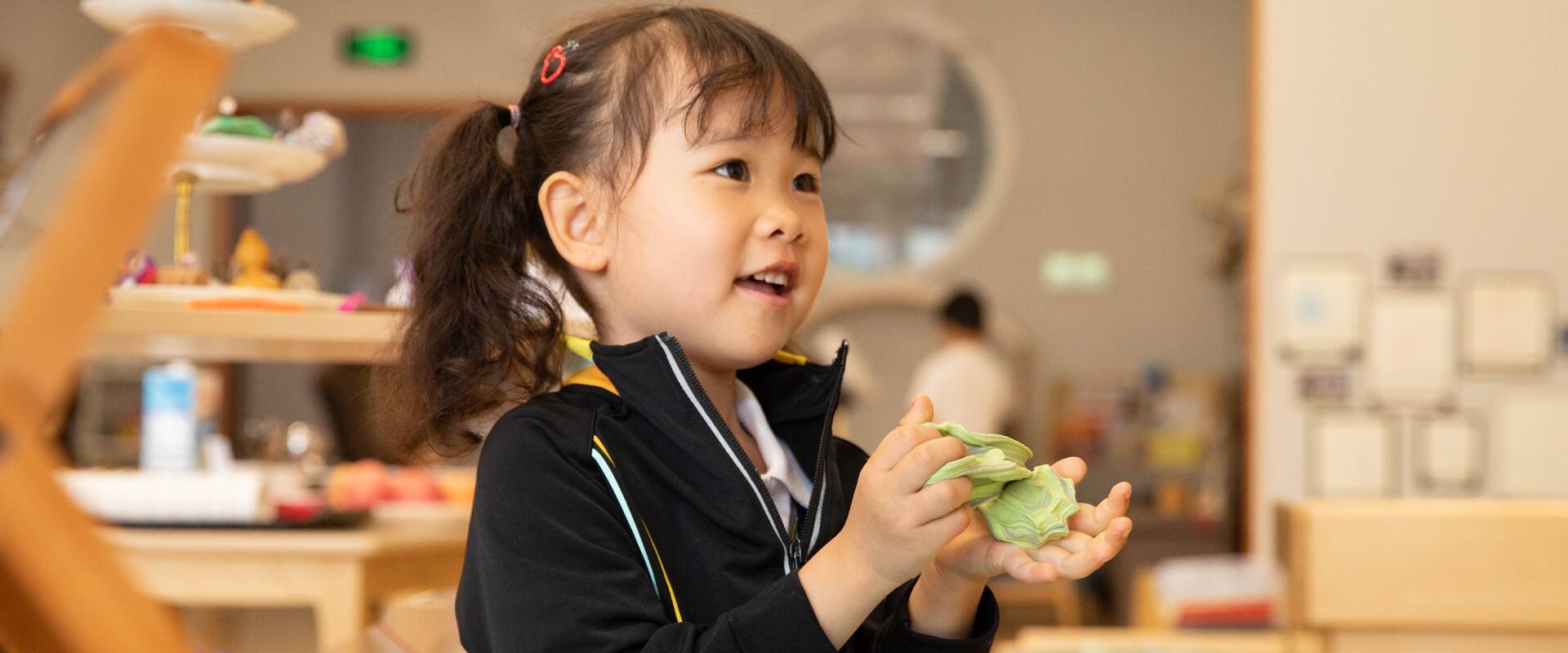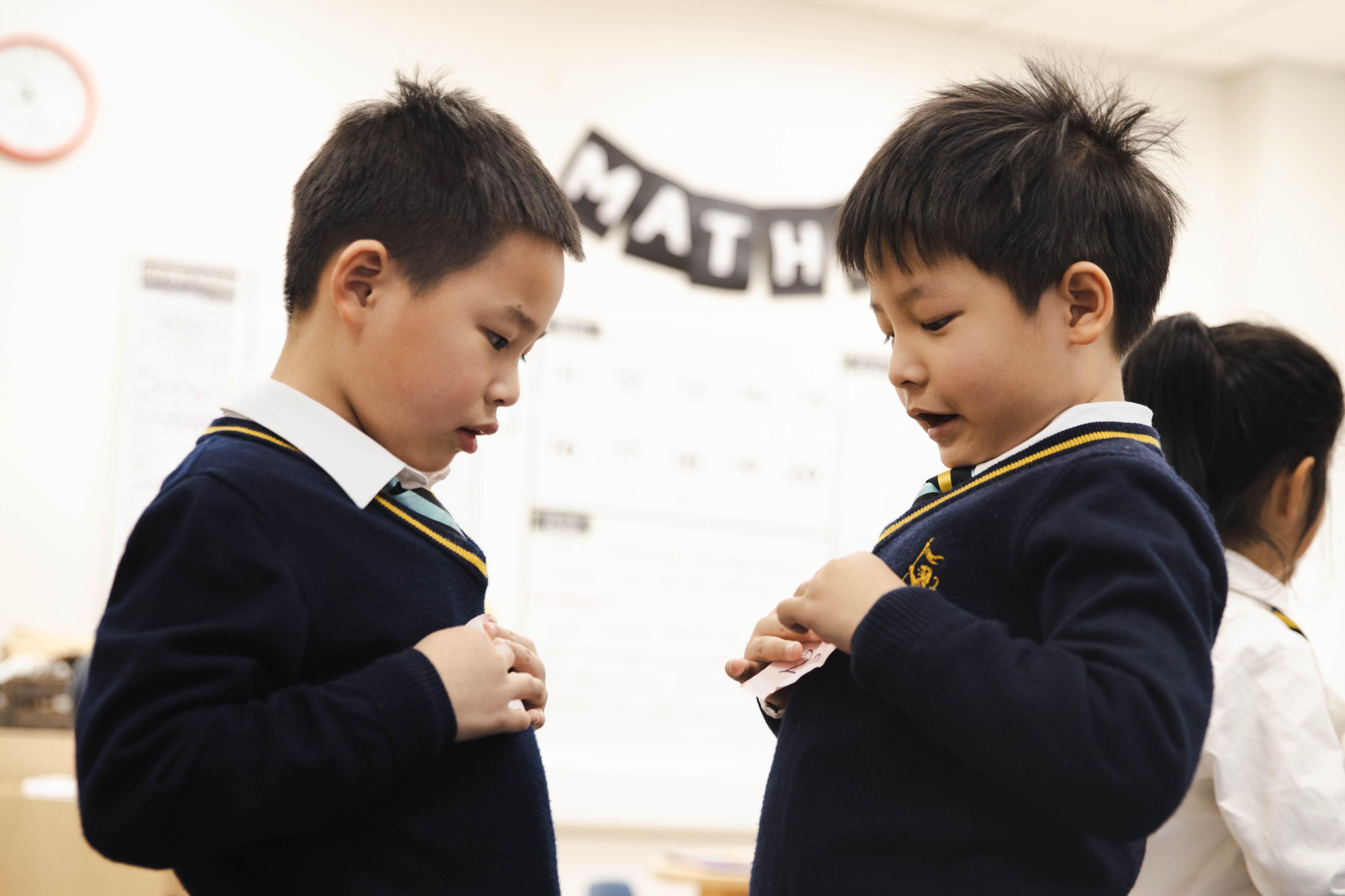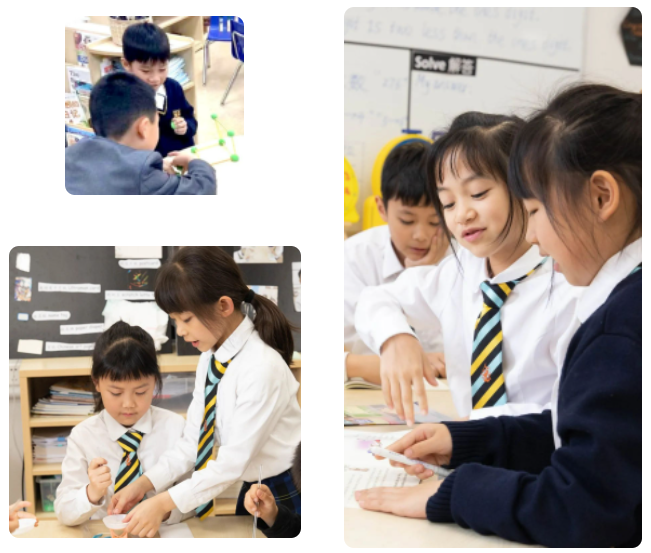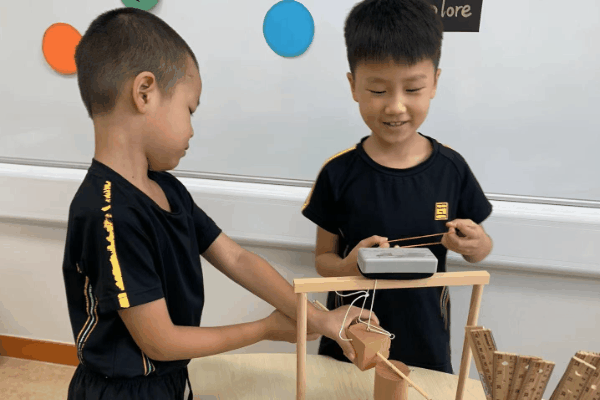
Eva Yu
Grade 1 Grade Lead
Mathematics is a universal language that is used in various fields to support scientific and technological developments. In the most recent National Mathematics Curriculum Standards, it puts forward three key competencies, which are to observe the real word with mathematical eyes, to think about the real word with a mathematical mind and to express about the real word with mathematical languages. These competencies coincide with our mathematics teaching philosophy at Huili Lower Primary.

In mathematics, the logical and independent thinking process always comes before the result. In Huili, we want to promote a way of thinking that children use to understand and solve problems. We aim to help our children in Lower Primary to become little mathematicians, not to push them to grow into a mindset that only focuses on memorising facts and solving equations.
A Huili LP mathematician is a problem solver who asks questions, investigates problems and explore solutions to them. We encourage them to find different ways to arrive at an answer. Mathematics is everywhere in our life. In our Maths classes, we link maths to our children's lives and projects, so they feel interested and relevant and are willing to get involved, apply what they know and can do, and gain a deeper understanding throughout learning. Therefore, at home you can also encourage your child to take part in family decision making process, such as planning for a family trip.

A Huili LP mathematician can communicate mathematically by using mathematical vocabulary, numbers, symbols or pictures to explain various scenarios; sharing how he or she arrives at an answer; listening to others' different ways of thinking. We engage children in mathematic conversations so they can communicate their conclusions with others, listen to arguments of others and justify their own conclusions using reasoning skills. To help your child to learn to communicate mathematically, you can ask him or her to explain a maths problem in daily life. For example, how are you going to share a pizza with your friends? Furthermore, you can also ask your child to draw a picture or even actually do it to show how the answer has been arrived.

A Huili LP mathematician can demonstrate reasoning ability, which means they think logically, can find similarities and differences between things, can make connections with different topics, and makes choices according to their findings. We incorporate children's prior knowledge to bridge the unknown with what they have already known. More importantly, we tell our children that wrong answers can help too. While accuracy is always what we look for, a wrong answer might help us discover more about children's thinking process and their reasoning behind it. If you want to help, the only thing you need to do is to listen. As you listen patiently to your child, you will hear him or her sharing detailed reasoning about the problems he/she is interested in.
We wish our Huili LP mathematicians can explore the infinite possibilities of this world by using the knowledge, skills and ways of thinking they have been learning in and out of the classroom.